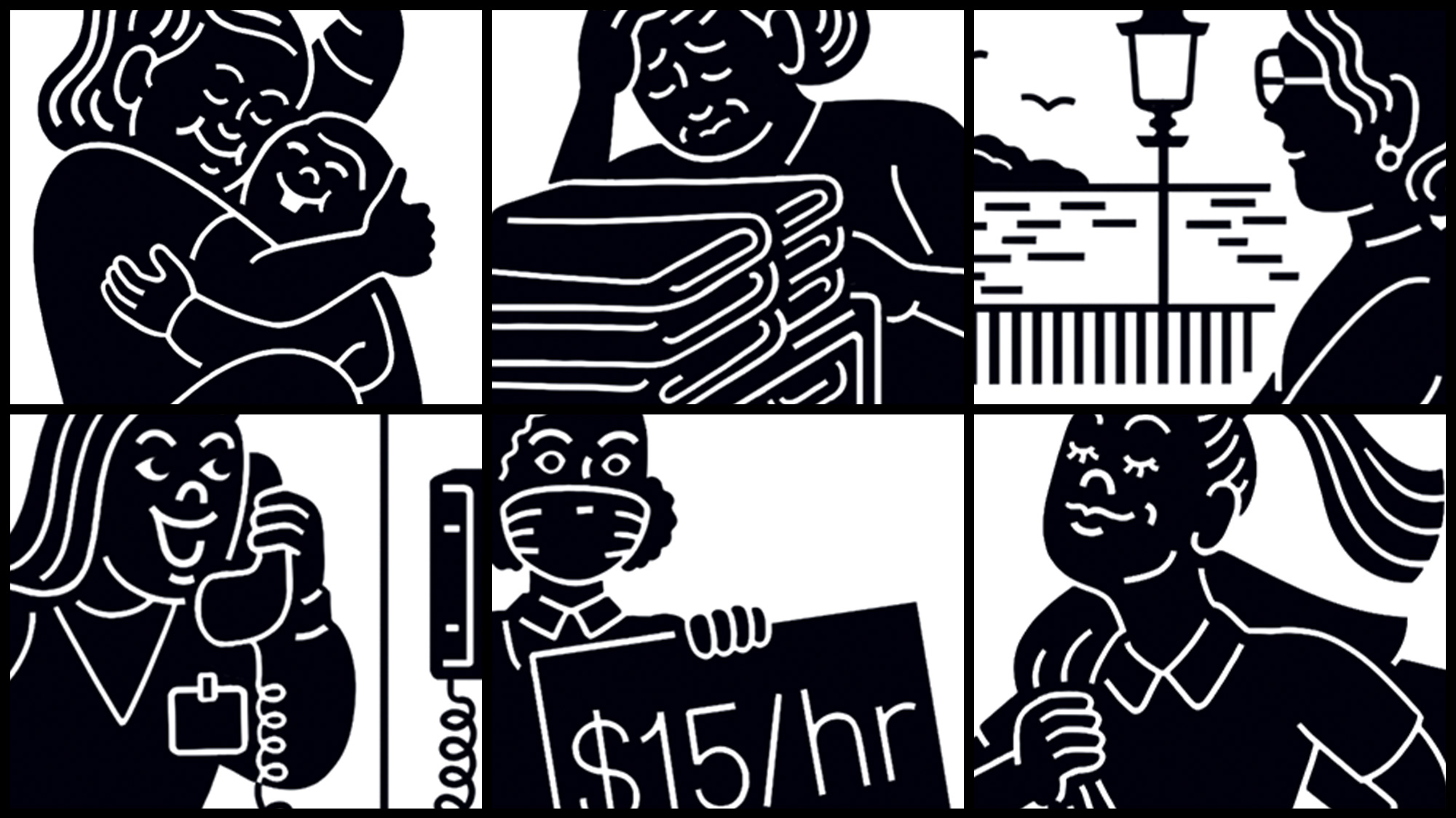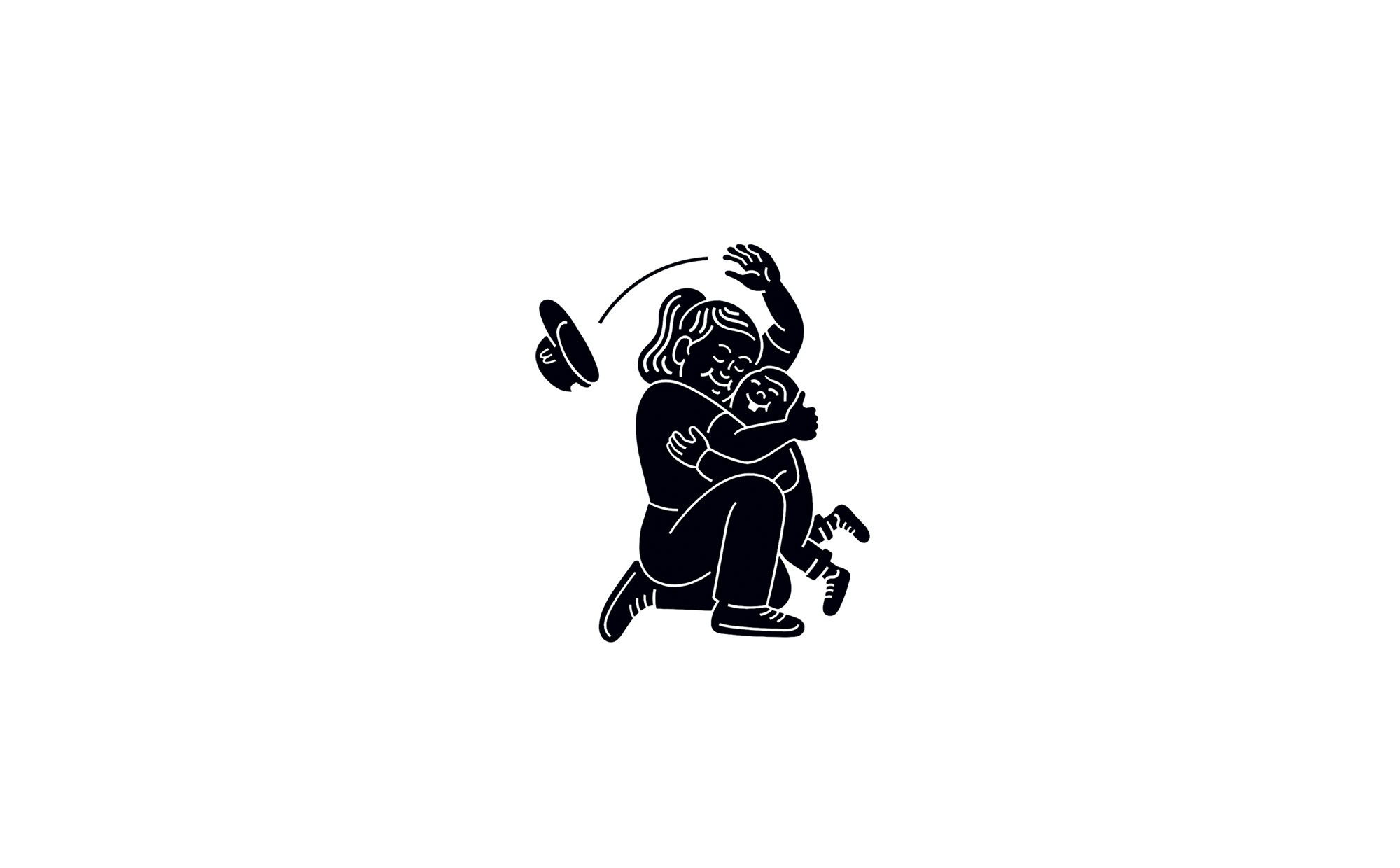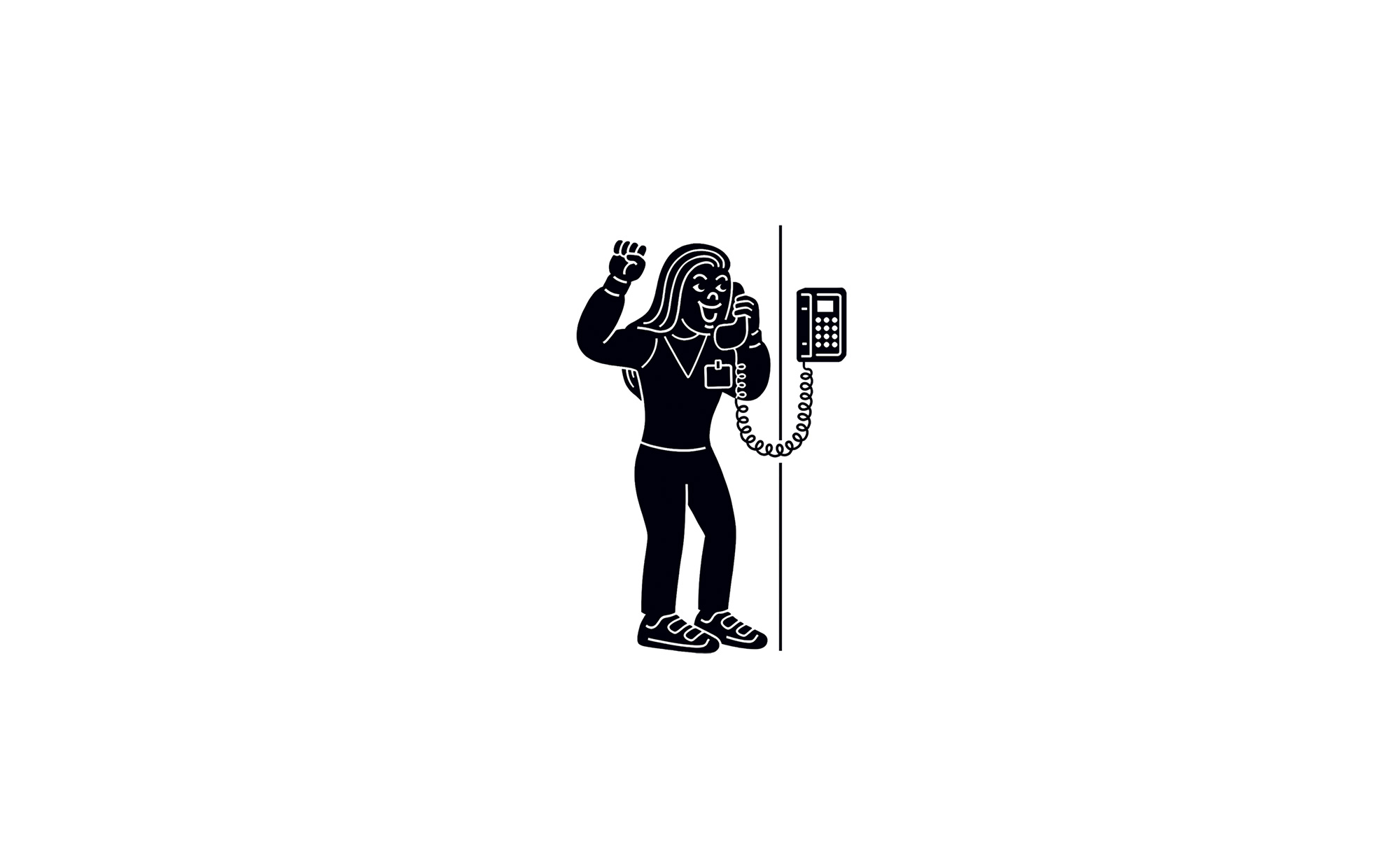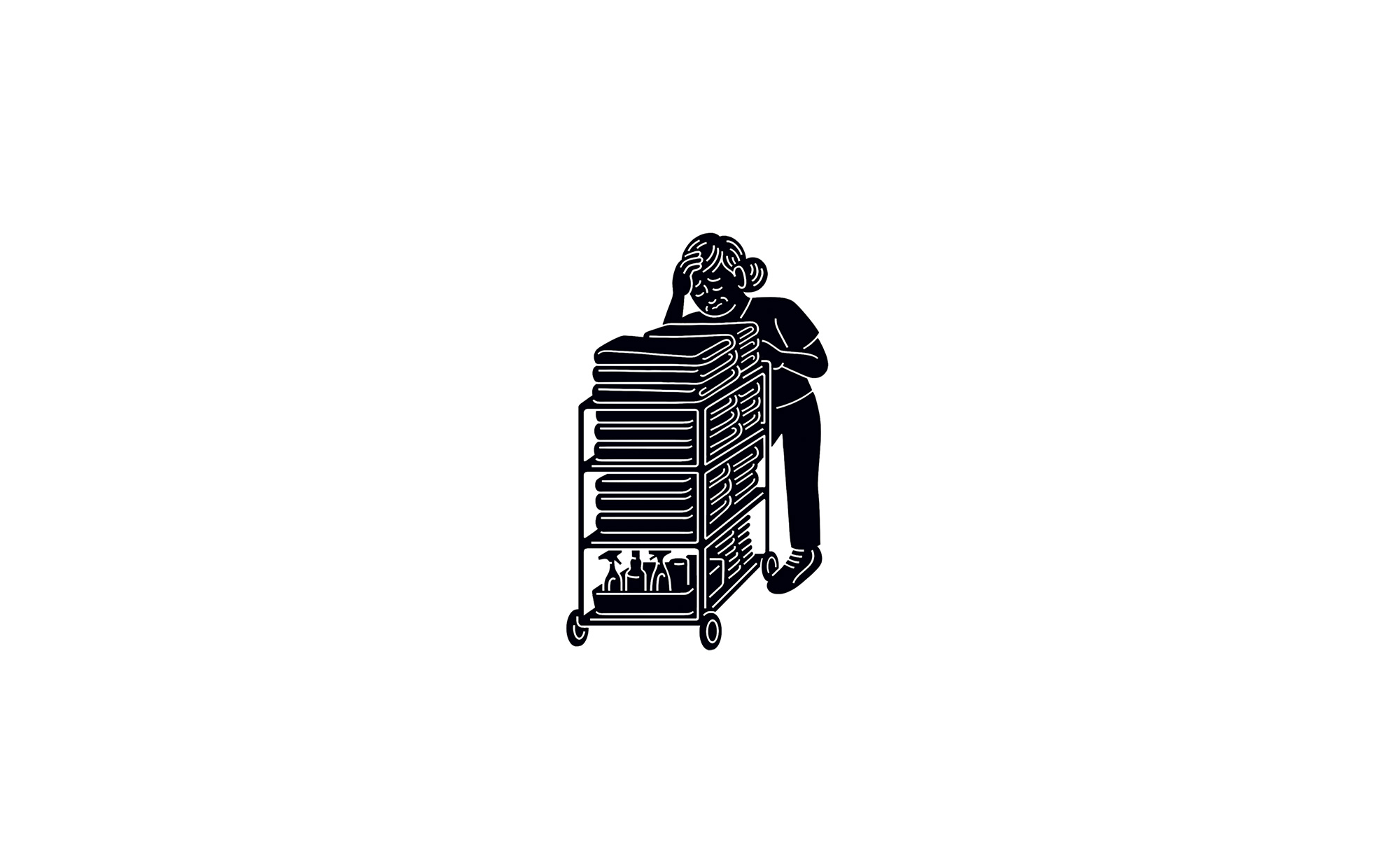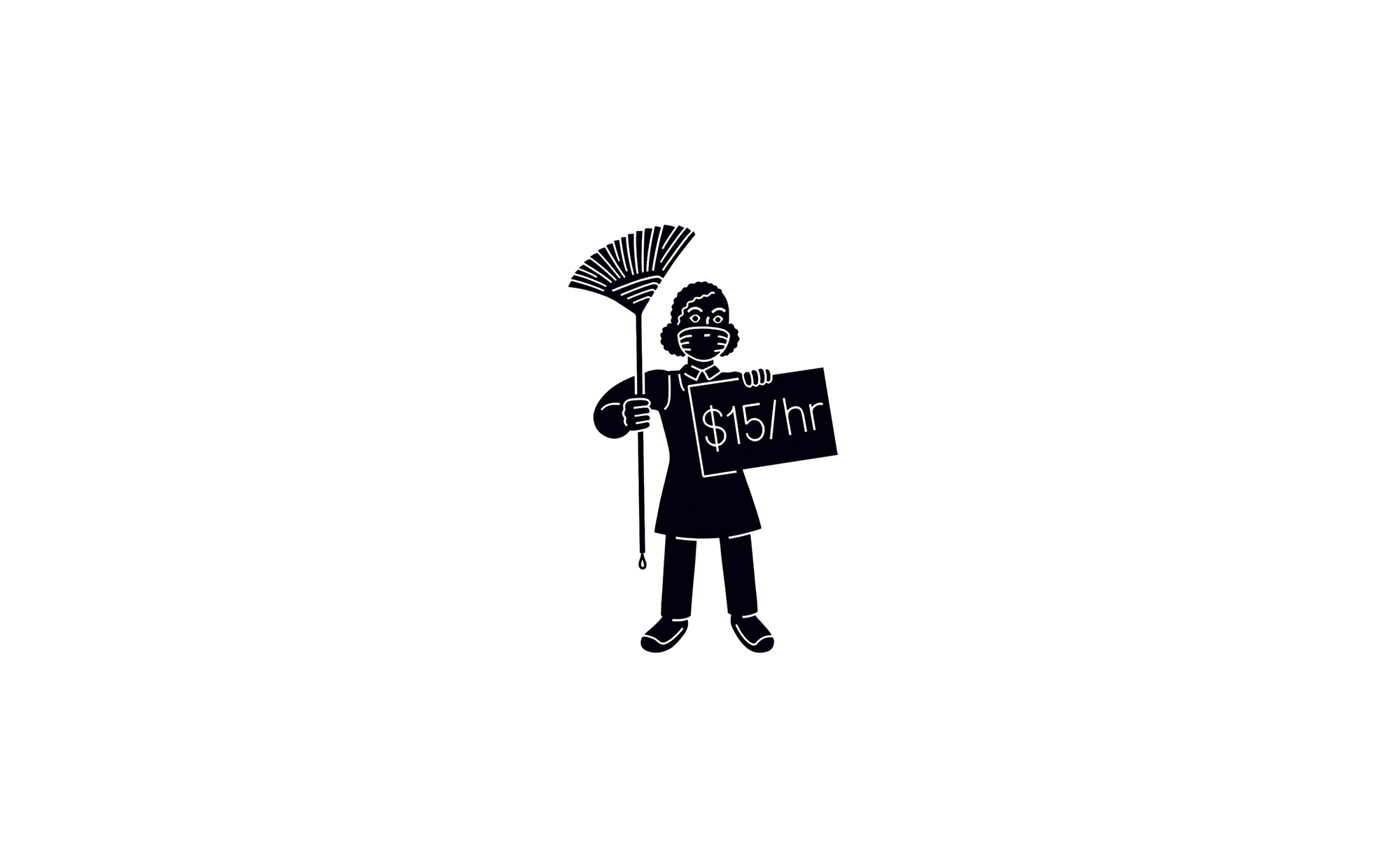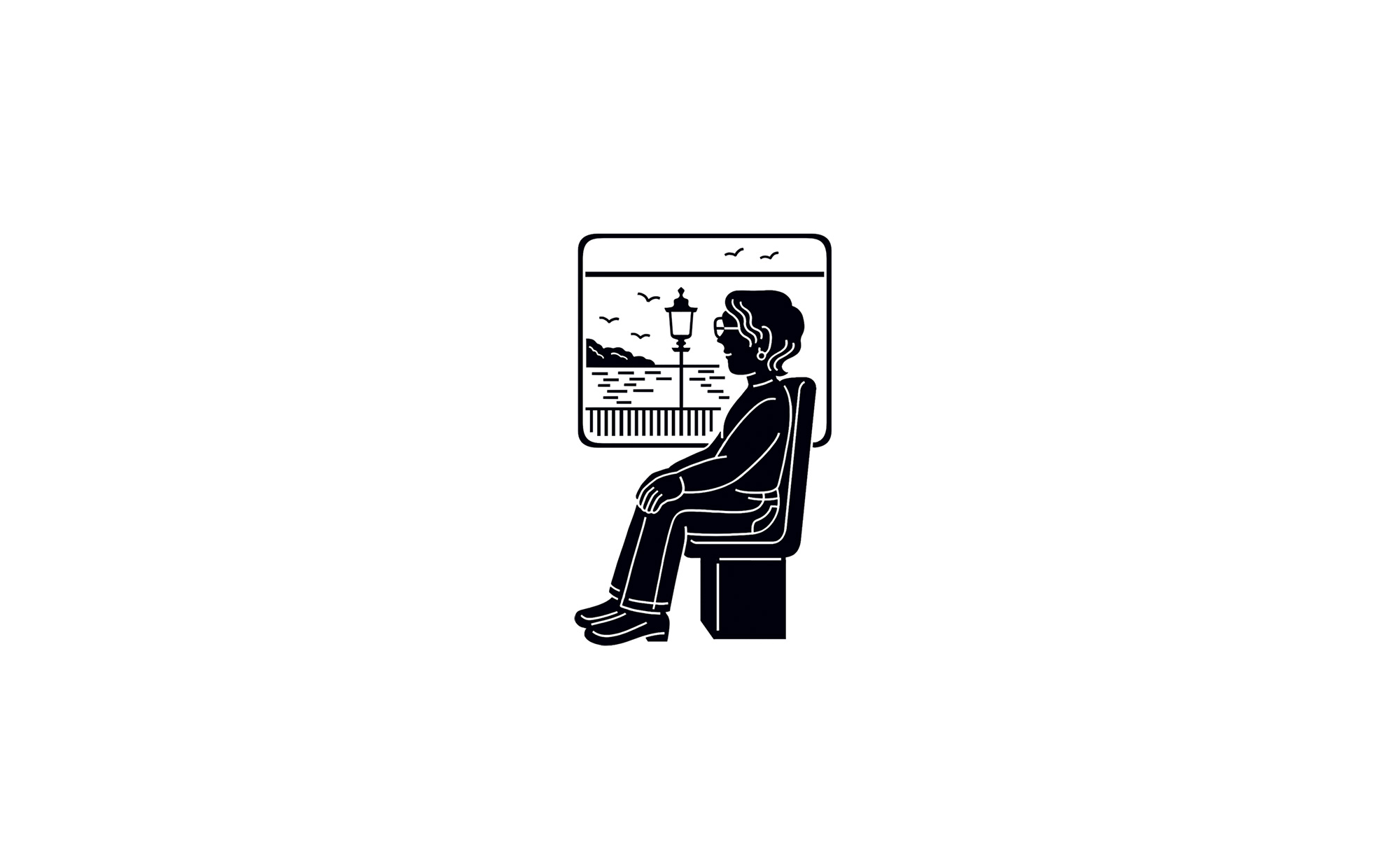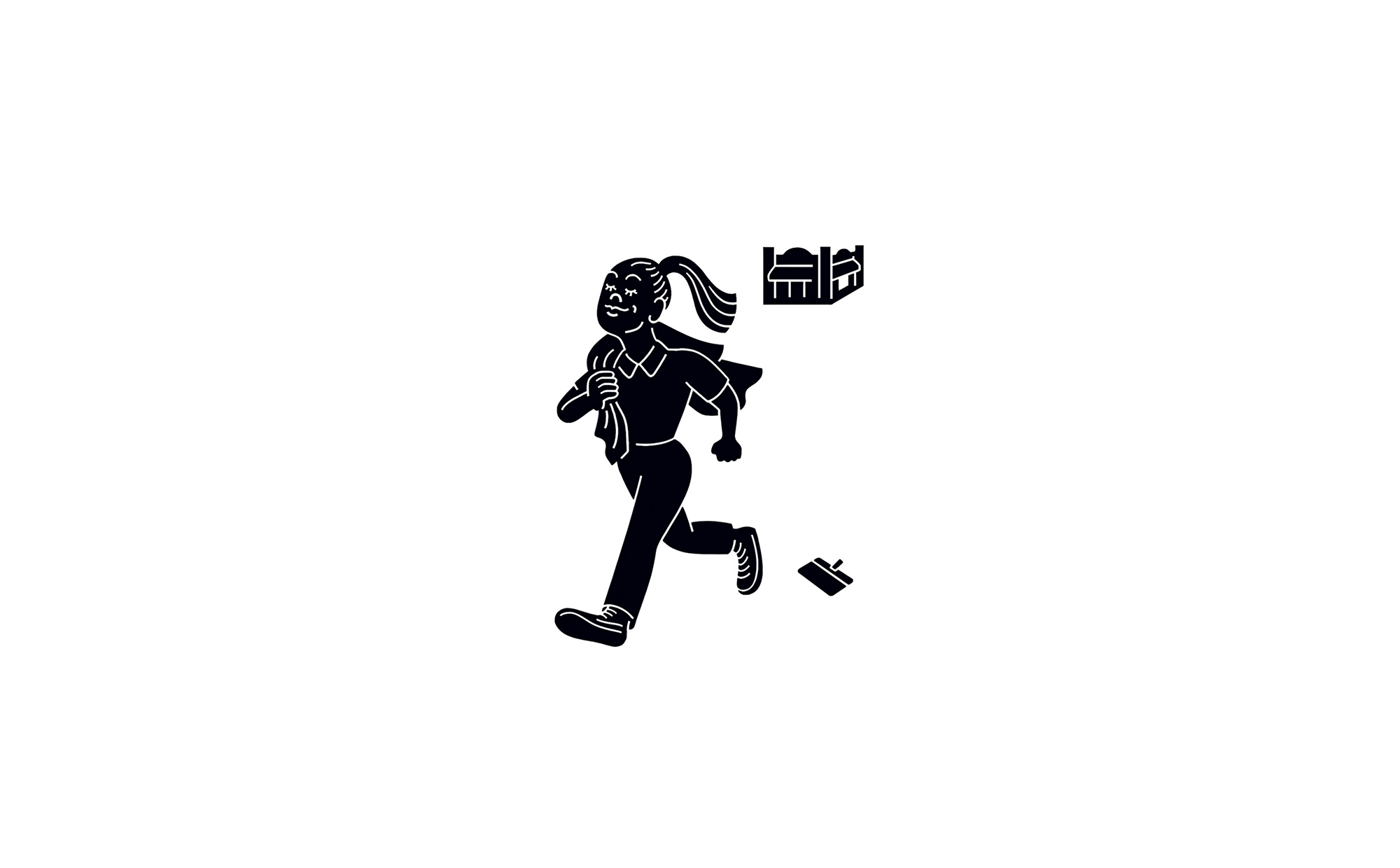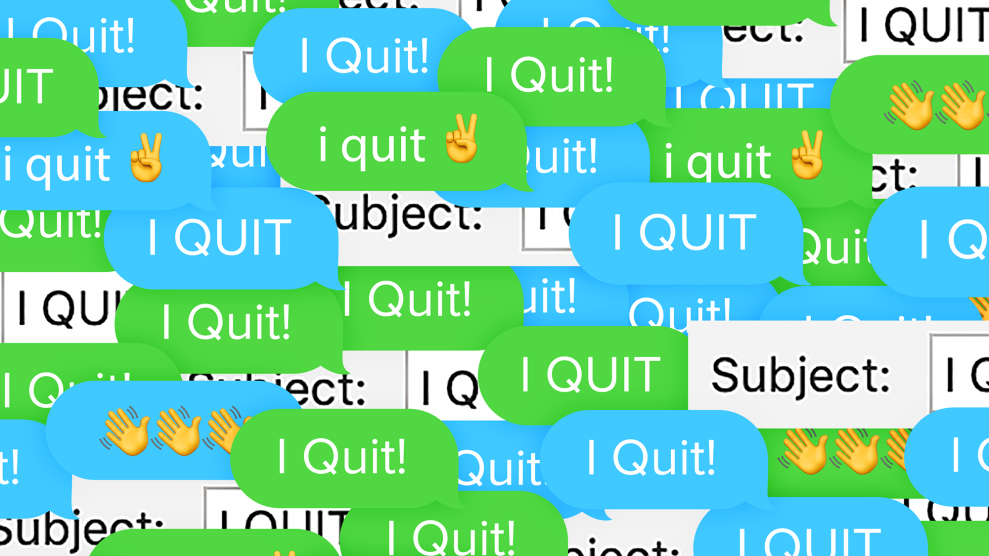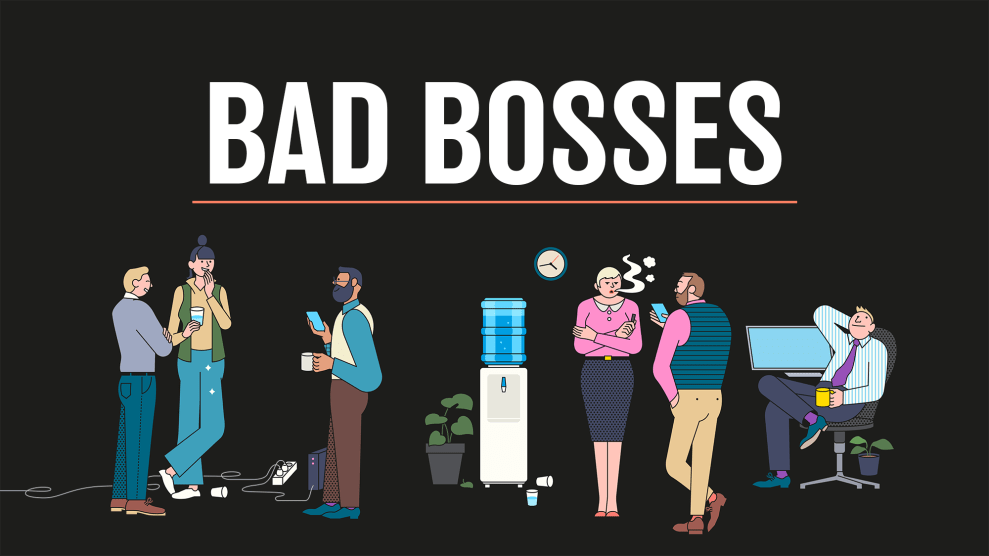In our January + February 2022 cover story, we attempted to answer a simple question: What the hell happened to labor since the pandemic began? It wasn’t one thing. But this package—through a series of worker stories as told in their own voices, interviews with experts, and dissections of media narratives—attempts to make sense of the moment. You can find the full package here.
No industry has seen more quitting during the last two years than leisure and hospitality, the Bureau of Labor Statistics category that covers hotels, restaurants, and many other areas of the service economy. These departures, memorialized over the in the “We all quit” signs in storefronts and beside drive-thrus, drove up wages and opened the door to new benefits. Here, workers in a field that’s traditionally relied disproportionately on people of color accepting poverty wages explain why they’re striking, quitting, or seeking something better.
My son was 5 at the time. One of the things I’ll never forget is him saying to me, “Mom, why don’t you hug me anymore?” I told him I couldn’t because my employer was being irresponsible.
The first person who got Covid was someone I’d worked right next to. I didn’t know she had Covid. McDonald’s hadn’t said anything about it to us. We demanded better protection and professional cleaning. I remember telling them that profits were more important to McDonald’s than their workers. I knew I had to do something. I decided to go on strike. —Lizzet Aguilar as told to Noah Lanard
The day that I quit, my boss put me on this job that I really hate doing: sorting apparel while people are unloading the truck. The fact that everybody was walking around, stomping on us, yelling at us, and treating us like they have for the past almost two years—that’s what made me upset.
So after we unloaded the first truck, I walked to a phone so I could talk on the intercom, and I said what I had to say. It felt exhilarating. I was angry, but I was happy. I reminisced on the horrible year that I had there, and it ignited a fire in me that just made me even more angry, but even happier to be saying that and then leaving.
On the way out, there were many, many, many people clapping and telling me, “Good job,” and “Congratulations,” and “Leave.” I don’t have a job, and I don’t expect to get one now, because I graduate in December, so I will be my own boss. I think I’m gonna be fine. —Shana Blackwell as told to Abigail Weinberg
In March 2020, we were laid off due to Covid. We were home for about 15 months. I couldn’t take a new job because I have a 9-year-old son, so I was homeschooling him.
Maybe a week or two after going back to cleaning rooms at the DoubleTree last fall, my doctor prescribed naproxen, because the work that I’m doing now, I’ve never done before. I have never worked so much in my life where my whole body aches and I have to actually be on medication. When I’d told her about it, she prescribed something stronger—because I was just doing Advil—so now I take naproxen in the morning, in the afternoon, and in the evening.
All they say is that we’re understaffed, which we are. A lot of people have quit because of the backbreaking work. Nobody wants to work anymore. I know you’ve heard about this supposed labor shortage, but it’s not because we don’t want to come back to work. It’s because of the extra workload that we have to go through now. It’s ridiculous.
Honestly, I didn’t want to stay because it is a lot for me. But I’m also a mother, a wife. I can’t just leave the job without a plan. It provides for my son and my family. Especially health care—it’s very important to me. I’m going back to school soon, so maybe I’ll try something completely different. —Brenda Holland as told to AJ Vicens
At the start of the pandemic, most of my clients were paying me $11 an hour. I wore a mask, but they didn’t. I’d always walk to work when I could because it was safer, but sometimes I’d have to take the bus. It was scary. I was worried about infecting my son.
A year or so ago, I learned about the Worker’s Justice Project because they were giving away food, masks, and hand sanitizer. I found out that the minimum wage in New York City is $15 an hour. I was surprised.
On weekends, I sometimes worked for a woman and her kids. When I started with her a decade ago, I got paid $5 an hour. Eventually, that went up to $9. Last October, she told me I wasn’t entitled to the minimum wage. I understood her to be saying that it was because I don’t have papers.
I told her I wasn’t going to work for $9 anymore. I showed her a document from the Worker’s Justice Project that explained what my rights are. After she saw it, she agreed to pay me $15.
I told some other families I worked for that I was willing to work for $13 an hour, but not $11. They said that was fine. But then they paid me $11 again. They backed out and said they couldn’t afford it. I told them I wouldn’t be working for them until they gave me a raise. They ended up firing me. I showed the rest of my clients the card. They said $15 was no problem. If I hadn’t learned about my rights, I’d still be making what I was before. Nothing would have changed. —Anonymous as told to Noah Lanard
Things were still pretty crazy in terms of the pandemic. As soon as the city allowed people to go back though, Marshalls set a hard date for the reopening. They were putting me through this rigmarole to see if I was willing to come back—because if I wasn’t, they’d find somebody else. I felt like they had boxed me into that decision. I finally got fed up and said, “I’m not coming back.”
After I gave my resignation, I was penduluming between relief and a kind of guilt. On the one hand, I was relieved that I was able to make this choice and ensure my own safety. But at the same time, I felt this terrible guilt.
I saw one of my co-workers on the train as I was going somewhere. I don’t know if she didn’t recognize me or didn’t want to talk to me. I wonder if they feel like I’ve abandoned them. I’d worked there for 15 years, and I’d kind of gotten used to it as much as you can. It did feel a lot like Stockholm syndrome. Am I going into a situation full of even more unknowns than the one I’m leaving?
Right now, I’m trying to figure out what I’m going to do. On the good days when I’m able to calm down the guilt and anxiety, I feel like this is kind of liberating because I’ve been doing some things I’ve always wanted to do. I’ve been trying to learn Japanese through Duolingo and those online learning programs, and now I have a chance to really focus on it even more because my mental load isn’t as taxed. I really have to keep telling myself that things aren’t over just yet. Maybe it’s time to look at something more what I want than what I just need to get by. —Allison Mulattieri as told to Will Peischel
A red truck pulled up and it was three young Caucasian men. When I passed them their food, they asked me if they could get two free drinks. I told them they didn’t pay for it. We’re trained to say out the window, “Next order ready!”—so the car in front can move along for the next car to come.
When I said that, they turned around and called me a Black b-word and they spat toward the window. My unit director came out of the office and sees me hysterical. I’m crying. I’ve got makeup running everywhere. I told her what happened and her response was, “You don’t need to worry about that. The only thing you need to worry about is moving this drive-thru along and making sure the time doesn’t go up.”
Then she instructed the customers to meet her in front of the store and she said they could have whatever they wanted. She came back and told me, “They’re just kids. Don’t pay that any mind, just continue to work.”
After that, the guys were in the parking lot and sat outside their car and ate their food. It was kind of like a slap in the face, like, “Yeah we did that to you and there’s nothing you can do about it.”
I immediately left. That was my last day actually employed with Bojangles. Seven employees quit after I did. One of the managers and another employee walked out that day. The rest of the employees started leaving within that same week. The only reason I stayed as long as I did is because I have kids and I have to pay my bills at the end of the day. That’s when I knew that this employer didn’t give a crap about me. —Keisha Tibbs as told to Laura Thompson
